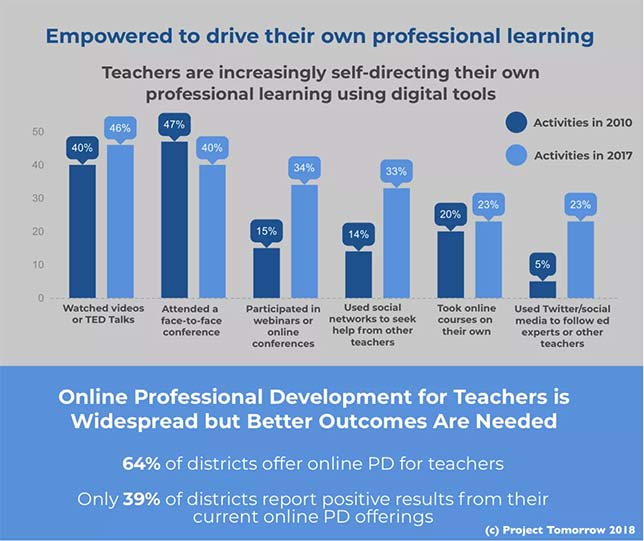Educators Largely Uncomfortable with Newer Tech-Based Teaching Practices
A majority of teachers expressed discomfort with newer teaching practices that rely on technology and said they need more collaborative planning time with their peers, in addition to traditional PD.
The findings were released today by Project Tomorrow from its annual Speak Up Research Project for Digital Learning. Responses were gathered from more than 33,000 classroom teachers across the country.
According to Project Tomorrow:
- 78 percent of teachers are "not very comfortable" facilitating student collaboration with digital devices.
- 76 percent are not comfortable personalizing learning for every student.
- 75 percent are uncomfortable creating project-based learning projects.
- And 70 percent are uncomfortable using student data to inform instructional practices.
The information was issued as part of a larger infographic just released publicly by Project Tomorrow.
The portion of the infographic shown below reveals that teachers have become more self-directed in their professional development this decade.

The research also showed that in order for them to implement new technology-driven strategies more effectively, teachers want:
- Collaborative planning time with peers (65 percent);
- Traditional professional development (53 percent);
- In-school coaching (39 percent);
- Information on classroom management strategies (32 percent); and
- Virtual coaching (19 percent).
Project Tomorrow's latest Speak Up Research Project for Digital Learning included responses from more than 10,000 schools in more than 3,300 districts. Further information can be found in a blog post released today on Project Tomorrow's site.